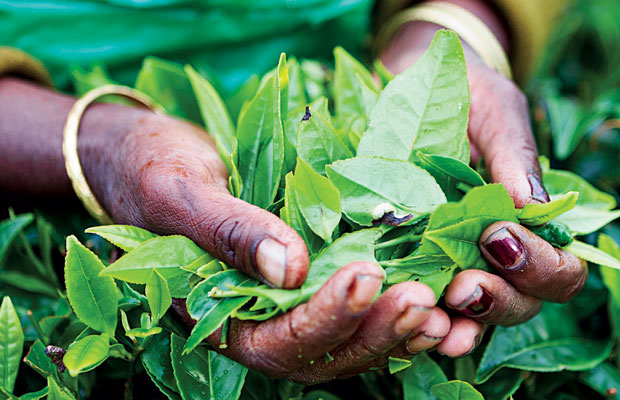
Escaping Poverty Through Tea
“This project has been a miracle!” So says Lawrence Kerketta, a former tea laborer in the Indian province of Assam. Having once earned less than $1 a day — an amount that left him unable to cover his family’s basic expenses — he now owns and operates a modest tea garden that provides income to spare. He is able to do this thanks to the help of our Salesian missionaries.
In 2008, these missionaries recognized a gross injustice. The very people who toil long hours in the fields — the ones who contribute most to India’s successful dominance of the global tea market — are not only exploited by the system, but trapped in a cycle of poverty with little hope for the future.
“Many of these laborers do own their own small pieces of land,” says Father Mark Hyde, director of Salesian Missions, “but their demanding and exhausting work outside the home means they have little time, or energy, to cultivate this land for their own benefit.
“In fact,” he continues, “rather than using their land to make a decent living, many laborers are forced to mortgage it for the cash they need just to survive.”
What makes this situation worse is the fact that many tea laborers lack the required education, or skills, to find competitive work in another sector. Less than 10 percent of India’s working-age population has completed secondary school, and 44 percent of adults in India are illiterate.
Thus, the “Bosco Tea Project” was born, with funding from the development arm of the Dimapur Province of the Salesians of Don Bosco. The project assists families seeking to establish self-sufficiency and an independent livelihood based on the skills, and resources, they already possess. Launched with just one sponsor, the project helped 50 families in its first year. Since 2008, the project has grown to include more than 700 families.
Project participants such as Mr. Kerketta receive start-up support to begin cultivating their own land — either through financial contributions, the donation of tea saplings, or both. They also attend training workshops, provided by the Salesians, to learn the business and technical skills required to succeed in the tea industry. Coupled with their established expertise in working the land, participants are well equipped to develop a sustainable income and envision a brighter future.
Sometimes, this brighter future is embodied in a child. For example, last year, Mr. Kerketta harvested close to 1,000 kilograms of tea leaves and earned more than 18,000 rupees — an amount he could only have dreamed about a few years ago. Because of this, he can now afford to send his son to school — which is a solid predictor of his son’s ability to find long-term work and establish financial security.
Mathias Soreng, another Bosco Tea Project participant, has also experienced the freeing power of self-employment. From the 3,800 tea saplings he received in 2009, he now harvests more than 110 pounds of tea leaves each week. Before entering the program, Mr. Soreng depended on creditors to provide the cash he needed to cover his family’s expenses.
“I never had money in my pocket,” he says. “But today, I have cleared all of my debts and I’ve been able to start saving!”
In a country with the world’s fourth-largest economy — yet one that is home to one-third of the world’s poor — Salesian missionaries are committed to creating greater opportunities for people to improve their earning potential and quality of life. The Bosco Tea Project is one such opportunity.
Our mission helps impoverished youth and adults to develop the knowledge and skills to secure long-term employment — and helps strengthen self-confidence and restore dignity in the process. What’s your mission?

